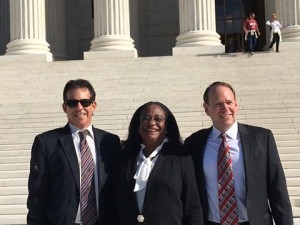Liability Under FCA Depends On Whether Defendants Believe They Lied
United States et al. ex rel. Schutte et al. v. Supervalu Inc. et al., 2023 WL 3742577 (2023)
The False Claims Act imposes liability on anyone who “knowingly” submits a “false” claim to the Government. 31 U. S. C. §3729(a). In some cases, that rule is straightforward: If a law authorized payment of $100 for “each” medical test, and a doctor knows that he did five tests but submits a claim for ten, then he has knowingly submitted a false claim. But sometimes, the rule is less clear. If a law authorized payment for only “customary” medical tests, some doctors might be confused when it came time for billing. And, while some doctors might honestly mistake what that term means, others might correctly understand whatever “customary” meant in this context—and submit claims that were inaccurate anyway. The cases before the Supreme Court involved a legal standard similar to that latter example: In certain circumstances, pharmacies are required to bill Medicare and Medicaid for their “usual and customary” drug prices. And, critically, these cases involved defendants who may have correctly understood the relevant standard and submitted inaccurate claims anyway. The question presented is thus whether the defendants could have the scienter required by the FCA if they correctly understood that standard and thought that their claims were inaccurate.
In a unanimous decision authored by Justice Thomas, the Supreme Court held that the answer is yes: What matters for an FCA case is whether the defendant knew the claim was false. Thus, if defendants correctly interpreted the relevant phrase and believed their claims were false, then they could have known their claims were false.


 On November 8, 2016, the U.S. Supreme Court heard oral argument in a case Helmer Friedman LLP successfully convinced the high court to hear. The case — Lightfoot v. Fannie Mae, Cendant Mortgage Corporation case (14-1055) — concerns whether individual homeowners who have been wrongly or fraudulently foreclosed upon by Fannie Mae have the right to sue the mortgage giant in the state courts.
On November 8, 2016, the U.S. Supreme Court heard oral argument in a case Helmer Friedman LLP successfully convinced the high court to hear. The case — Lightfoot v. Fannie Mae, Cendant Mortgage Corporation case (14-1055) — concerns whether individual homeowners who have been wrongly or fraudulently foreclosed upon by Fannie Mae have the right to sue the mortgage giant in the state courts.